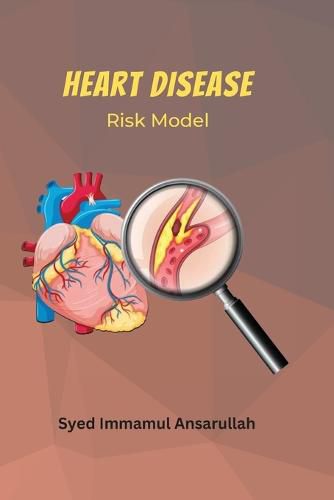Readings Newsletter
Become a Readings Member to make your shopping experience even easier.
Sign in or sign up for free!
You’re not far away from qualifying for FREE standard shipping within Australia
You’ve qualified for FREE standard shipping within Australia
The cart is loading…






This title is printed to order. This book may have been self-published. If so, we cannot guarantee the quality of the content. In the main most books will have gone through the editing process however some may not. We therefore suggest that you be aware of this before ordering this book. If in doubt check either the author or publisher’s details as we are unable to accept any returns unless they are faulty. Please contact us if you have any questions.
A heart disease risk model is a tool that can be used to identify individuals who are at increased risk for developing cardiovascular diseases. These risk models incorporate a range of factors, including medical history, lifestyle factors, biomarkers, genetic factors, and medical imaging. The use of predictive modeling and artificial intelligence (AI) algorithms to analyze electronic health record (EHR) data has shown promising results in identifying individuals at increased risk for heart disease, as well as improving clinical decision-making and precision medicine. The sensitivity and specificity of heart disease risk models can be improved by incorporating a wider range of data sources and more advanced machine learning techniques. The development of effective heart disease risk models has important implications for healthcare, enabling healthcare providers to identify patients who are at increased risk for cardiovascular diseases, and to develop personalized treatment plans to mitigate this risk. Overall, heart disease risk models are an important area of research with significant potential for improving population health and chronic disease management.
$9.00 standard shipping within Australia
FREE standard shipping within Australia for orders over $100.00
Express & International shipping calculated at checkout
This title is printed to order. This book may have been self-published. If so, we cannot guarantee the quality of the content. In the main most books will have gone through the editing process however some may not. We therefore suggest that you be aware of this before ordering this book. If in doubt check either the author or publisher’s details as we are unable to accept any returns unless they are faulty. Please contact us if you have any questions.
A heart disease risk model is a tool that can be used to identify individuals who are at increased risk for developing cardiovascular diseases. These risk models incorporate a range of factors, including medical history, lifestyle factors, biomarkers, genetic factors, and medical imaging. The use of predictive modeling and artificial intelligence (AI) algorithms to analyze electronic health record (EHR) data has shown promising results in identifying individuals at increased risk for heart disease, as well as improving clinical decision-making and precision medicine. The sensitivity and specificity of heart disease risk models can be improved by incorporating a wider range of data sources and more advanced machine learning techniques. The development of effective heart disease risk models has important implications for healthcare, enabling healthcare providers to identify patients who are at increased risk for cardiovascular diseases, and to develop personalized treatment plans to mitigate this risk. Overall, heart disease risk models are an important area of research with significant potential for improving population health and chronic disease management.